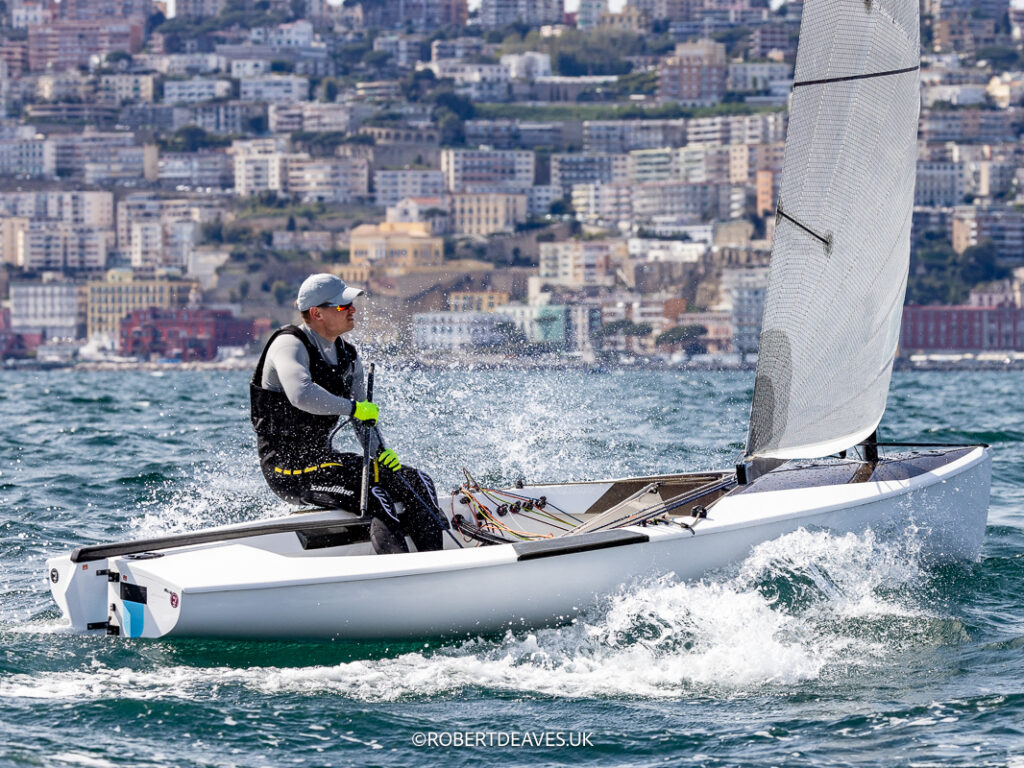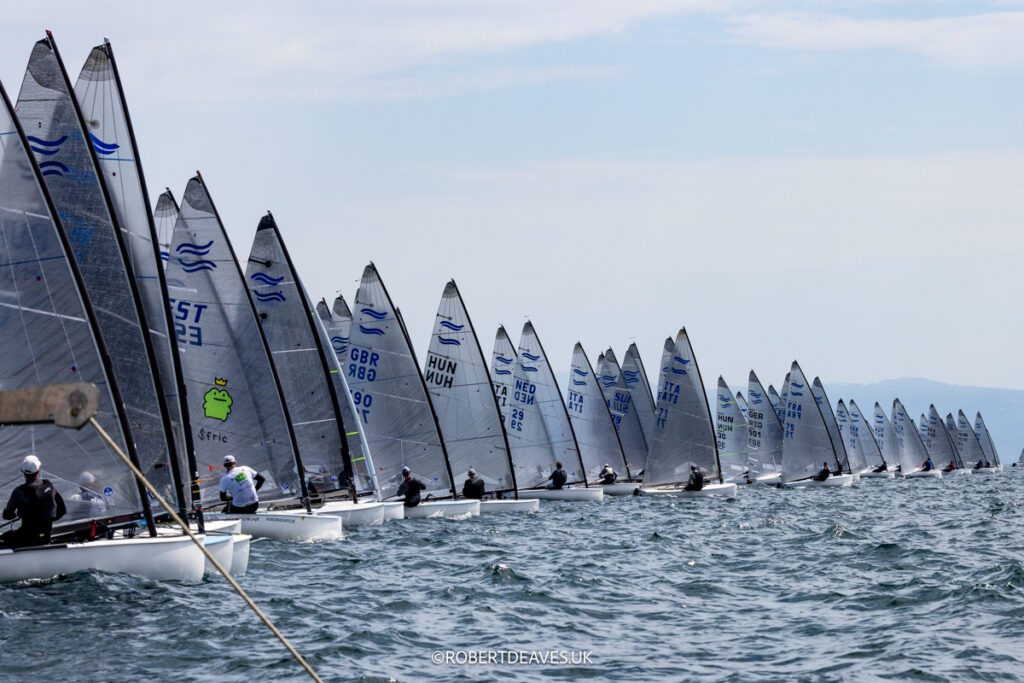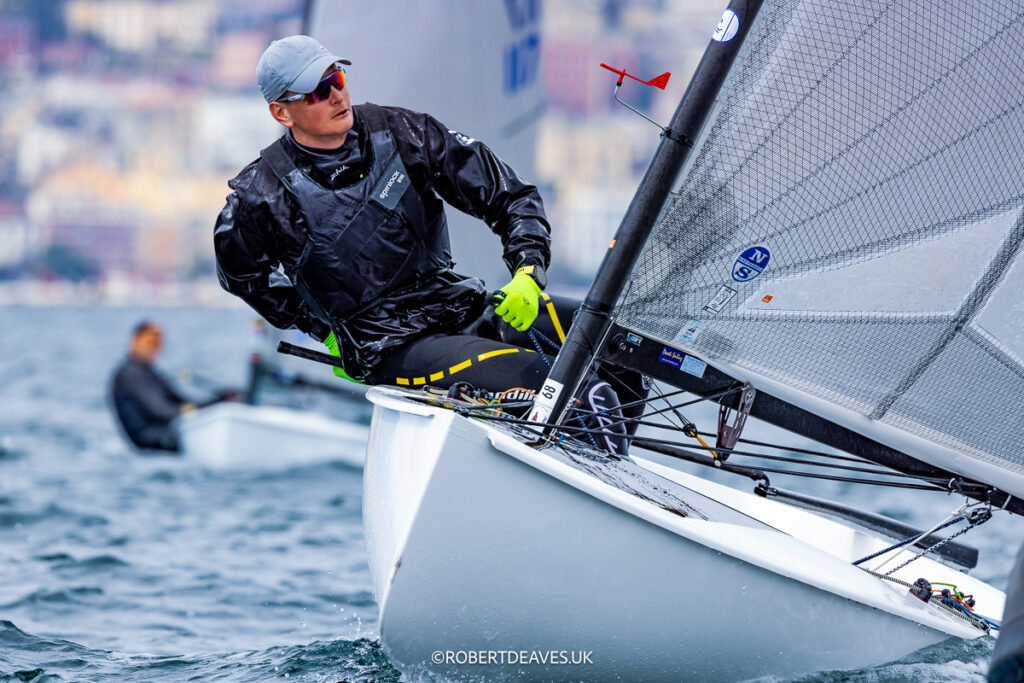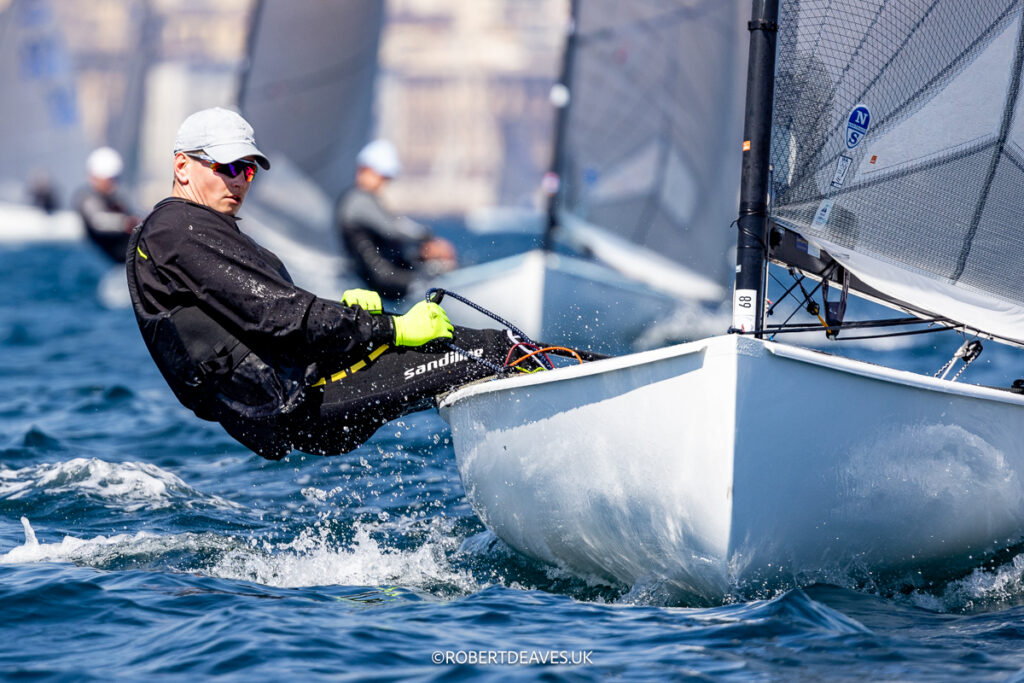Mechanical Engineering Student’s Sporting Success

Elemér Péter Haidekker Finishes as Top Hungarian Competitor in the Finn Dinghy European Championship, Taking 17th Place Overall in Naples
This year’s European Championship took place in Naples, Italy, from April 5–12, 2025. The event saw 111 competitors from 20 countries line up in the Finn Dinghy single-handed class. The 14-member Hungarian national team was the second-largest contingent after the host country, Italy. Among them, the top-performing Hungarian was Elemér Péter Haidekker, a mechanical engineering student from the Bánki Faculty of Obuda University, who secured an impressive 17th place overall. We extend our heartfelt congratulations on his outstanding achievement!
The Finn dinghy is a single-handed Olympic sailing class designed for the 1952 Helsinki Summer Olympics. As a one-design class, all boats are built to identical specifications—same dimensions, sail area, weight, and materials—ensuring that the results depend purely on the sailors’ skills, physical condition, tactical decisions, and maneuvering abilities, rather than technical advantages between boats.
The first two days of the championship were dedicated to registration and boat measurement checks. Racing took place over the following five days, with competitors completing two races per day. All 111 boats started together in each race, each lasting approximately one hour. Points were awarded based on finishing position: 1 point for first place, 2 points for second, and so on. The final score was the sum of all race results, with the lowest total score winning.
Below you can read Péter Elemér Haidekker’s own report, as well as his answers to our questions:
“We raced two heats per day over five days, in light to moderate wind conditions. Each race was physically demanding, and there was little time to recover by the next day. I had a rough start to the event—after finishing 102nd in the first race, I knew I had already used my one discardable result. Fortunately, in the following nine races, I managed to finish in the top 20 every time except twice. I was especially happy to place 2nd in the 7th race, out of a 110-strong fleet. I wrapped up the final day with two good results (11th and 6th), which helped improve my overall ranking. I finished 17th overall at the European Championship, making me the top Hungarian competitor.”
How did you prepare for the championship?
“During winter, when water training isn’t possible in Hungary, I focused on dry-land strength and endurance training—5 to 6 gym sessions per week, including sport-specific exercises, running, cycling, and rowing. I also paid close attention to my diet and nutrition. From March onward, I trained with my coaching partners on Lake Balaton.”
Was it difficult to prepare alongside your university studies?
“Personally, I find it particularly challenging to balance sports with my studies—both require a lot of time and effort, and time is a limited resource. The hardest part is time management, ensuring that neither area suffers. Fortunately, my professors at the university are very supportive and help me keep up with the curriculum when I need time off to prepare for competitions.”
What’s next for you?
“Now that the European Championship is over, my focus shifts to completing my studies as a final-year student. The competition season in Hungary started in April, so I’m racing domestically while continuing my training. I’m also preparing for the World Championship in early September, which will be held in Cascais, Portugal.”
We wish Elemér the best of luck in both his continued training and academic pursuits!
Photo credit and source: Robert Deaves (http://robertdeaves.uk)




